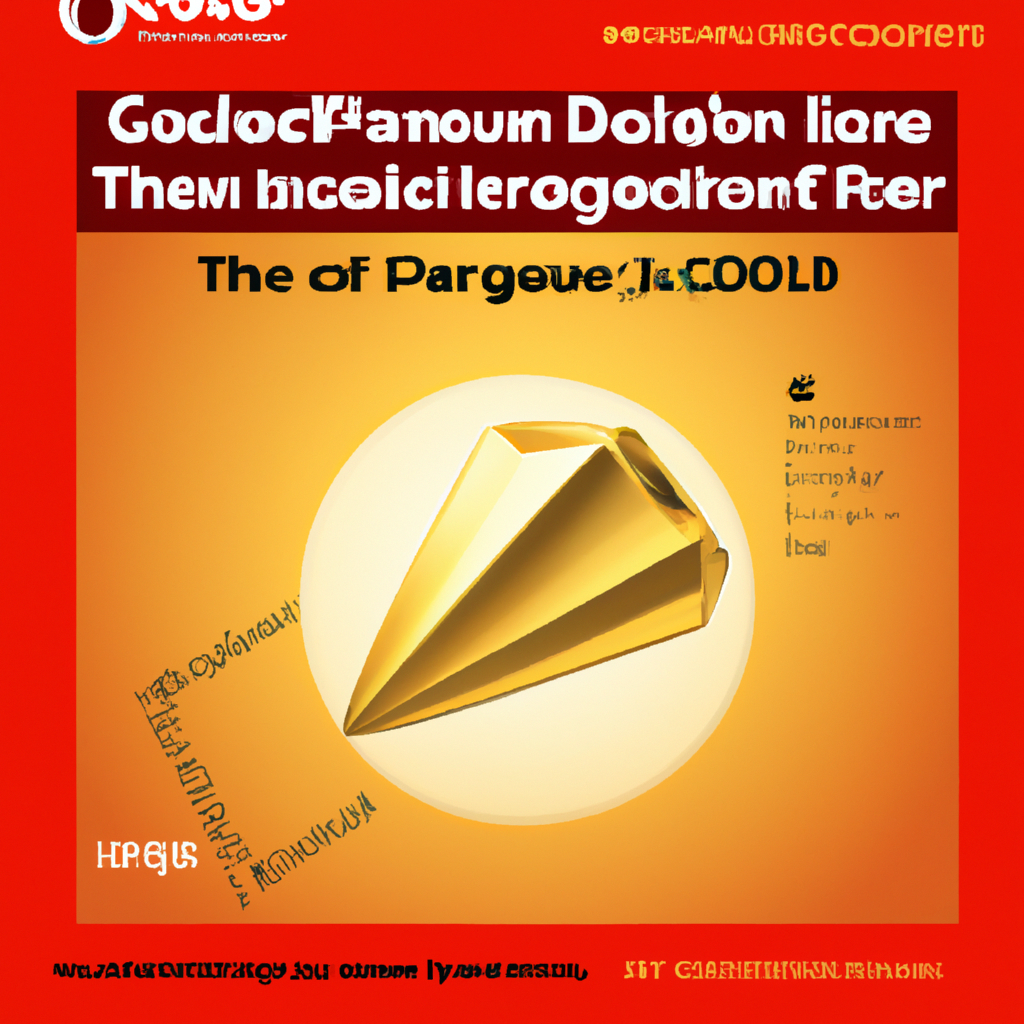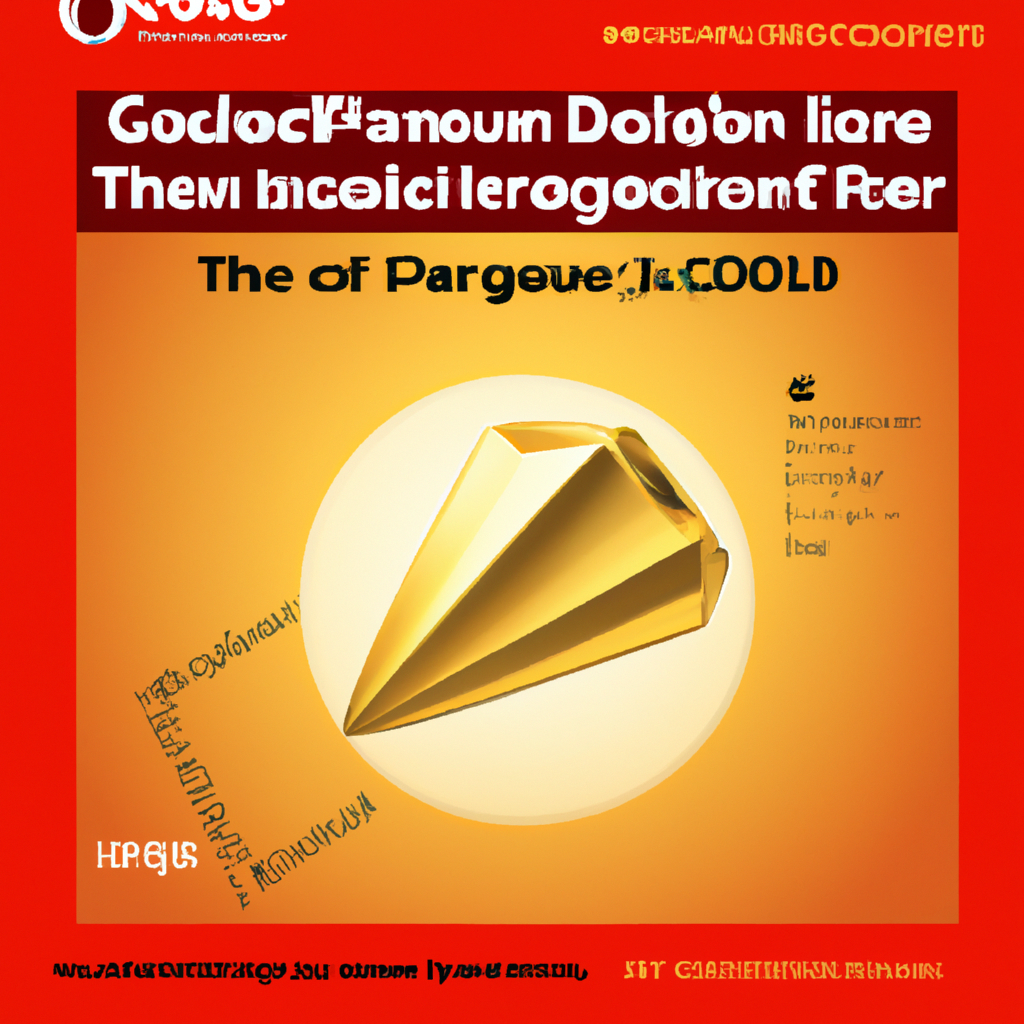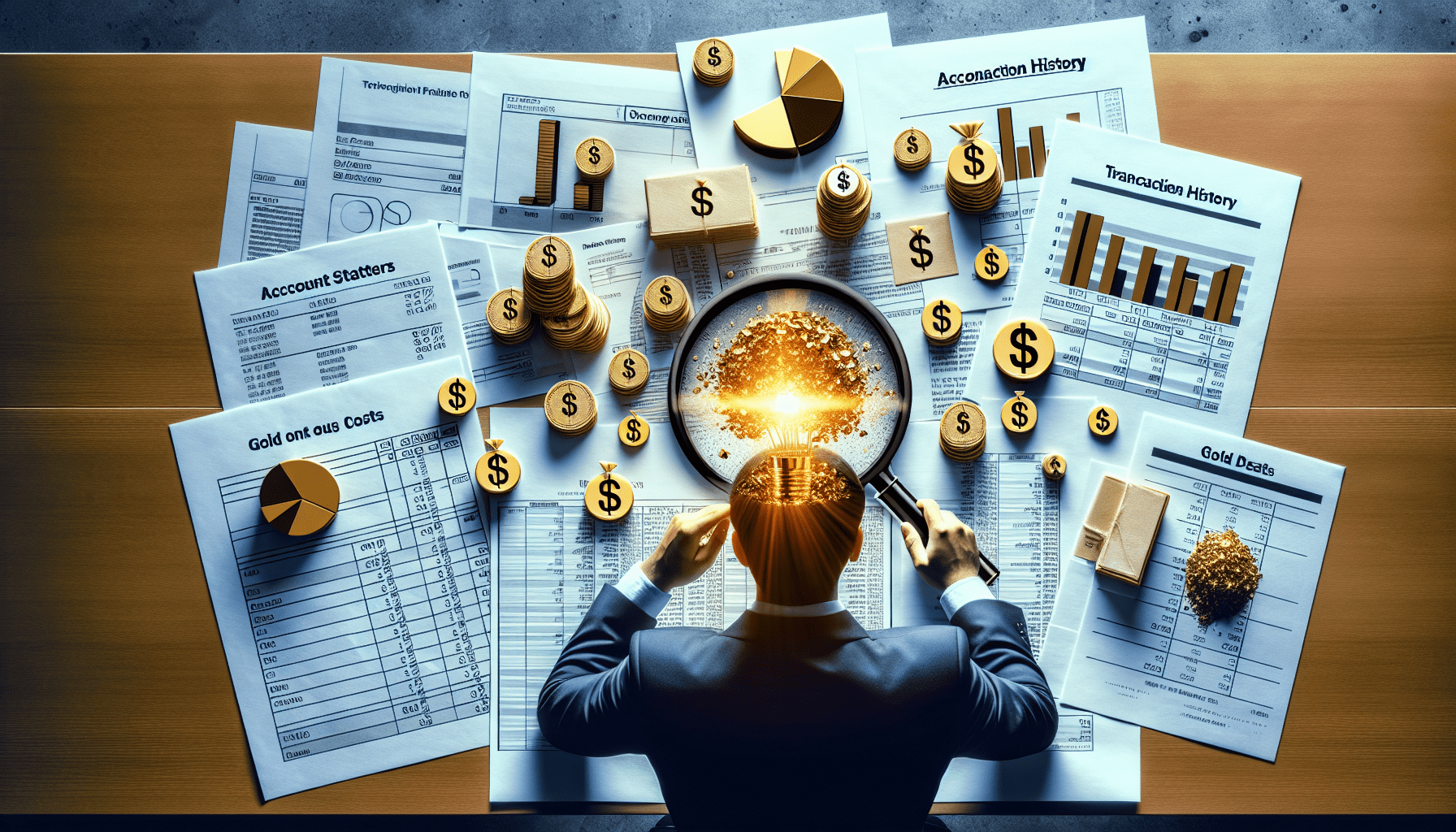Thinking about investing in gold in 2023? Curious about whether its value will increase? Look no further! In this article, we’ll explore the question on everyone’s mind: “Will gold go up in 2023?” As an expert in gold investment, you’ll find a comprehensive analysis of the factors that may influence gold prices in the upcoming year. From economic trends and geopolitical uncertainties to supply and demand dynamics, we’ll cover it all. So sit back, relax, and get ready to make informed decisions about your gold investments in the year ahead.
Factors Affecting Gold Prices
Gold prices are influenced by various factors that shape both the short-term and long-term trends. By understanding these factors, you can make informed decisions regarding your gold investments. Here are the key factors that have a significant impact on gold prices:
Demand and Supply
The fundamental law of economics, demand, and supply, plays a crucial role in determining gold prices. When there is a high demand for gold and a limited supply, the prices tend to rise. Conversely, if the demand decreases or the supply increases, gold prices may decline. Factors that affect gold demand include jewelry purchases, industrial uses, and investments.
Inflation and Economic Uncertainty
Inflation and economic uncertainty often drive investors towards gold as a safe haven asset. During periods of high inflation or economic instability, such as recessions or geopolitical tensions, investors seek the stability and hedge against uncertainties that gold provides. As a result, the demand for gold increases, leading to price appreciation.
Central Bank Policies
Central banks play a crucial role in setting monetary policies, which can significantly impact gold prices. When central banks pursue expansionary monetary policies, such as lowering interest rates or implementing quantitative easing, it can create a favorable environment for gold prices to increase. This is because lower interest rates reduce the opportunity cost of holding gold and can lead to inflation concerns.
Currency Movements
The value of gold is often denominated in fiat currencies, such as the US dollar. Therefore, movements in currency exchange rates can influence gold prices. A weaker currency generally makes gold more attractive as it becomes relatively cheaper for investors holding other currencies. Additionally, gold often acts as a hedge against currency devaluations, leading to increased demand and higher prices.
Gold Price Trends in Recent Years
To assess the potential outlook for gold prices in 2023, it is essential to review the trends observed in recent years. By analyzing gold price movements, we can gain insights into the market dynamics. Here is a summary of gold prices in the past three years:
Gold Price in 2020
In 2020, gold experienced significant price volatility due to the outbreak of the COVID-19 pandemic. Initially, gold prices surged to record highs as investors sought safety amid the uncertainty. However, as central banks introduced liquidity measures, and the economic recovery gained momentum, gold prices gradually declined. Nonetheless, gold ended the year with strong gains compared to the previous year.
Gold Price in 2021
The year 2021 saw a reversal in gold price trends. Despite inflationary concerns and ongoing economic uncertainties, gold prices experienced a downward trajectory. Factors such as the rollout of COVID-19 vaccines, improved economic outlook, and rising bond yields contributed to the decline in gold prices throughout the year.
Gold Price in 2022
In 2022, gold prices demonstrated a mixed performance. The first half of the year witnessed a gradual recovery, fueled by inflationary pressures and concerns surrounding the Omicron variant. However, as the global economy regained stability and central banks indicated potential interest rate hikes, gold prices faced downward pressure. Overall, gold prices in 2022 remained relatively range-bound.

Forecasts for Gold Prices in 2023
Looking ahead to 2023, it is essential to consider various factors that could influence the direction of gold prices. While no forecast can be entirely accurate, experts analyze a range of indicators to provide their perspectives on gold price movements. Here are some key factors affecting gold price forecasts for 2023:
Expert Opinions
Financial analysts and experts closely monitor economic indicators, inflation rates, geopolitical events, and central bank policies to provide forecasts for gold prices. It is anticipated that expert opinions will consider a combination of both bullish and bearish factors when assessing the potential for gold price movements in 2023.
Economic and Geopolitical Factors
Economic conditions, such as GDP growth rates, employment levels, and consumer sentiment, can influence gold prices. Moreover, geopolitical events, such as trade tensions or political uncertainties, can create market volatility, leading investors to seek the stability and diversification that gold offers.
Impact of COVID-19
The ongoing impact of the COVID-19 pandemic remains a significant factor affecting global economies and financial markets. As new variants emerge or economic disruptions persist, gold prices could potentially benefit from increased demand as investors seek safe-haven assets.
Positive Factors for Gold Price Increase in 2023
While various factors could contribute to potential gold price increases in 2023, the following factors are worth considering:
Inflationary Pressures
If inflation rates rise above central bank targets, it could encourage investors to hedge against inflation by allocating more capital to gold. The presence of inflationary pressures erodes the value of fiat currencies, making gold an attractive investment option.
Global Economic Uncertainty
Geopolitical tensions, trade disputes, or economic uncertainties can create a favorable environment for gold. During times of global instability, investors may flock to gold as a safe haven to protect their wealth.
Volatility in Financial Markets
Financial market volatility can amplify risk aversion among investors. As stock markets experience turbulence or bond yields become volatile, gold often acts as a safe haven. The potential for increased volatility in financial markets could lead to higher demand and, consequently, higher gold prices.
Central Bank Gold Reserve Accumulation
Central banks have been steadily increasing their gold reserves over the past decade. If central banks continue to prioritize gold accumulation, it could provide a supportive environment for gold prices.

Negative Factors for Gold Price Increase in 2023
While several factors may support the optimism for gold price increases, it is essential to consider potential negative factors that could limit its upside in 2023:
Improved Economic Outlook
If the global economy demonstrates a robust and sustained recovery in 2023, it could lead to reduced demand for safe-haven assets like gold. A favorable economic outlook, along with rising interest rates and strong corporate earnings, may divert investor attention away from gold.
Decline in Inflation Rates
Inflation rates that remain within central bank targets or decline below expectations may dampen the appeal of gold as an inflation hedge. In such circumstances, investors may reduce their exposure to gold, leading to downward pressure on prices.
Tightening Monetary Policies
Central banks may implement monetary policies aimed at controlling inflation, which could include interest rate hikes or tapering of quantitative easing programs. The prospect of tightening monetary policies can boost the strength of fiat currencies and potentially negatively impact gold prices.
Strengthening of the US Dollar
As the US dollar strengthens against other major currencies, the attractiveness of gold for investors holding those currencies diminishes. A stronger US dollar typically makes gold relatively more expensive for international buyers, potentially putting downward pressure on gold prices.
Historical Performance and Seasonality of Gold
To gain further insights into gold price dynamics, it is valuable to consider the historical performance and seasonal trends of gold prices. While past performance does not guarantee future results, it provides a historical context for gold price movements.
Long-Term Performance of Gold
Over the long term, gold has demonstrated a track record of preserving wealth and acting as a hedge against various economic and geopolitical uncertainties. Despite short-term fluctuations, gold has consistently maintained its value and even outperformed certain major indices over extended periods.
Seasonal Trends in Gold Prices
Gold prices often exhibit seasonal patterns that repeat over time. For example, demand for gold tends to rise during cultural festivals or wedding seasons in countries with significant gold consumption. Additionally, retail demand may increase during periods of gift-giving, such as year-end holidays. Understanding seasonal patterns can help investors navigate potential entry and exit points.

Investment Strategies for Gold in 2023
Considering the potential outlook for gold prices in 2023, it is crucial to develop appropriate investment strategies. Here are some strategies to consider when incorporating gold in your investment portfolio:
Portfolio Diversification
Gold is widely regarded as a valuable tool for diversifying investment portfolios. By allocating a portion of your portfolio to gold, you can potentially reduce overall risk and protect against adverse market conditions. Diversification ensures that your investments are not overly reliant on a single asset class.
Physical Gold vs. Gold ETFs
Investors have the option to invest in physical gold, such as bars or coins, or gold exchange-traded funds (ETFs) that track the performance of gold. Physical gold offers tangible ownership and the ability to hold an investment directly. On the other hand, gold ETFs provide convenience and liquidity, making them suitable for investors who prefer a more accessible form of gold investment.
Investing in Mining Companies
Investors can gain exposure to gold through investing in gold mining companies. These companies are involved in the exploration, development, and production of gold. Before investing in mining companies, it is crucial to conduct thorough research and consider factors like the company’s financial health, management expertise, and geopolitical risks.
Buying Gold Coins and Bars
For those interested in owning physical gold, purchasing gold coins and bars can be an attractive option. Gold coins and bars can serve as both an investment and a tangible asset. It is important to ensure the authenticity and quality of the gold products by purchasing from reputable dealers.
Risks and Challenges for Gold Investors
While gold can offer numerous benefits, it is essential to be aware of the risks and challenges associated with gold investment:
Price Volatility
Like any financial asset, gold prices can be subject to significant volatility. Sudden market movements, changes in investor sentiment, or unexpected economic events can lead to sharp price fluctuations, which may result in potential losses for investors.
Regulatory and Political Risks
Gold investments can be influenced by regulatory changes and political decisions. Government policies related to mining, taxation, or ownership rights can impact the profitability and value of gold investments. Additionally, geopolitical tensions or trade disputes could affect the supply and demand dynamics of gold.
Storage and Security
For investors who choose to own physical gold, storage and security can be a challenge. It is crucial to ensure that your gold is stored in a secure location, such as a reputable vault or bank. Considerations such as insurance, accessibility, and safeguarding against theft or damage should be taken into account.
Counterfeit Gold
The risk of counterfeit gold exists in the market. To mitigate this risk, it is advisable to purchase gold from reputable dealers who have established a track record of reliability. Verifying the authenticity of gold through professional assay services or independent testing can provide additional assurance.

Other Precious Metals and their Outlook
While gold often receives significant attention, it is worth considering other precious metals and their potential outlook. Here is a brief overview of two other important precious metals:
Silver
Silver, often referred to as “poor man’s gold,” has unique properties that make it attractive to investors. Silver prices tend to be more volatile than gold prices, offering potential for higher returns. Silver also has industrial uses, which can influence its price. In terms of outlook, silver’s performance may depend on factors such as industrial demand, economic conditions, and its relationship with gold prices.
Platinum
Platinum is a rare and valuable metal commonly used in catalytic converters, jewelry, and industrial applications. Its price is often influenced by supply and demand dynamics, particularly for the automotive industry. Platinum tends to trade at a higher price than gold due to its scarcity. The outlook for platinum may be influenced by factors such as economic recovery, changes in emission standards, and shifts in global supply.
Palladium
Palladium is primarily used in the automotive industry, particularly in catalytic converters. It is renowned for its role in reducing emissions from gasoline-powered vehicles. Like platinum, palladium’s price is heavily influenced by supply and demand dynamics in the automotive sector. The outlook for palladium may hinge on factors such as global vehicle sales, emission regulations, and supply disruptions.
Conclusion
Gold prices are influenced by a complex interplay of factors, spanning from economic indicators to geopolitical events. While the specific trajectory of gold prices in 2023 remains uncertain, understanding the factors that affect gold prices can help investors make informed decisions. By considering both the positive and negative factors for gold price increases, reviewing historical price trends, and formulating appropriate investment strategies, investors can navigate the gold market with greater confidence. It is essential to be mindful of the risks and challenges associated with gold investment while exploring opportunities in other precious metals. As with any investment, thorough research and careful consideration of one’s financial goals are paramount.









